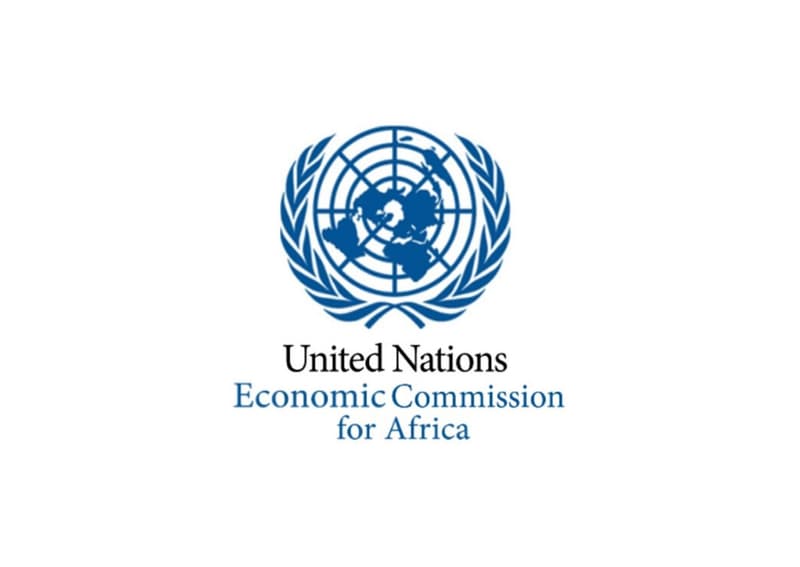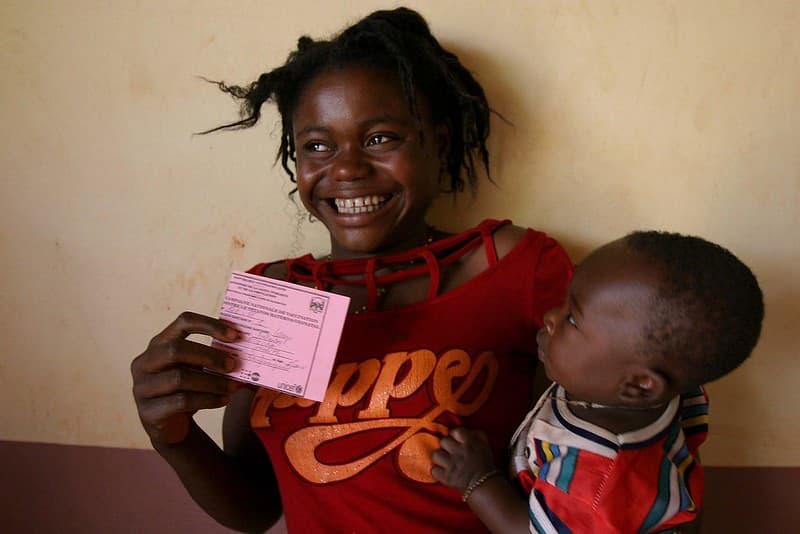Officer, Science, Systems and Services for All, China
Beijing
- Organization: UNAIDS - The Joint United Nations Programme on HIV/AIDS
- Location: Beijing
- Grade: Junior level - NO-B, National Professional Officer - Locally recruited position
-
Occupational Groups:
- Scientist and Researcher
- Closing Date:
| UNAIDS is an innovative United Nations partnership that leads and inspires the world in achieving universal access to HIV prevention, treatment, care and support. UNAIDS' Cosponsors include UNHCR, UNICEF, WFP, UNDP, UNFPA, UNODC, UN Women, ILO, UNESCO, WHO and the World Bank. Visit the UNAIDS Web site at |
|||
|
Vacancy No.: UNAIDS/23/TASR3
Title: Officer, Science, Systems and Services for All, China Grade: NO-B Contract type: Temporary Appointment under Staff Rule 420.4 Duration of contract: 12 months |
Date:
10 November 2023
Application Deadline: 1 December 2023 (8 day(s) until closing deadline) Currently accepting applications Organization unit: AI/RSB Regional Support Team, Asia and Pacific (AI/RSB) Duty station: Beijing China |
||
|
About UNAIDS: Serving Communities and Countries to End Inequalities and AIDS. We, the Joint United Nations Programme on HIV/AIDS, lead the global effort to end AIDS as a public health threat by 2030. By placing the Sustainable Development Goals (SDGs) related to reduction of inequalities at the heart of our work, we lead the global response to AIDS by: (i) maximizing equitable and equal access to HIV services, (ii) breaking down barriers to achieving HIV outcomes, and (iii) integrating efficient HIV responses into wider health and protection systems. We are committed to creating an equal, safe and empowering workplace culture where all people in all their diversity thrive. We live our values of Commitment to the AIDS Response, Integrity and Respect for Diversity. You can access the full UNAIDS Competency Framework: https://www.unaids.org/. |
|||
|
MANDATE OF THE DEPARTMENT: The Executive Office (EXO) provides vision, leadership, and inspiration to UNAIDS. It highlights and drives emerging issues, focuses areas of work, and steers the organization - positioning it as a global leader on ending AIDS. In performing these functions, EXO facilitates communication and coordination within UNAIDS and with partners while serving as a reference and intelligence hub. EXO is responsible for maintaining effective management practices within the organization to ensure the efficiency and effectiveness of its operations. Multilateral Systems is located within the Executive Office (EXO). It is a newly formed team set up to strengthen UNAIDS strategic engagement across the multilateral system, strengthening UNAIDS role as a frontrunner and incubator of UN reform and sharing lessons learnt from the unique inclusive governance model of UNAIDS for crises of our times (climate change, pandemics, systemic racism etc.). The team includes the New York and African Union Liaison Offices located in New York and Addis Ababa respectively as well as Office in China. Together this enables a joined-up political and strategic engagement across the multilateral system and relevant inter-governmental spaces. The UNAIDS Regional Office for Asia and the Pacific provides leadership and coordinates support for an expanded UN system response to ending the AIDS epidemic at regional and country level. It steers, promotes, and supports regional and national partners and the UN system towards ending AIDS as a public health threat by 2030. Using an equity and equality lens as part of the Sustainable Development Goals (SDGs), the UNAIDS Regional Office for Asia and the Pacific promotes effective use of strategic information of the epidemic trends and the status of its response and provides technical leadership on people-centered HIV prevention and response in the region focused on key populations and locations most at risk. Under the overall leadership and guidance of the UNAIDS Executive Director, and supervision of the Director of Multilateral Systems in the Executive Office-in close consultation with the Resident Coordinator (RC) who retains the overarching leadership and authority to strategically position the UN system in China and beyond, and the Director of Regional Support Team (RST) for the Asia and Pacific who provides leadership and coordinates support for an expanded UN system response to ending the AIDS epidemic at regional and country level-the UNAIDS Office in China functions to perform a set of triple mandates: liaison function, global outreach and country support. a) Liaison function: Build, strengthen and sustain the relationship between UNAIDS and the emerging international development institutions and mechanisms of China, to ensure achieving the Global AIDS Strategy and Political Commitment Declaration for 2021-2026, and the goals of ending AIDS as a public health threat by 2030 and leave no one behind, as part of the Sustainable Development Goals (SDGs). b) Global outreach and special initiatives: Promote the vision and corporate agenda of UNAIDS, and develop policy positions, strategies, special initiatives, and campaigns that support China's partnership with the rest of the world, focusing on China's south-south collaboration and global health diplomacy agenda and engagements. c) Country support: Provide leadership and coordinate support for an expanded UN system response to support China's domestic HIV agenda towards ending AIDS as a public health threat by 2030 and leave no one behind, with a Fast-Track approach to rapidly scale up HIV services focused on populations and locations most affected by the epidemic. |
|||
|
Main tasks and Responsibilities of the Position: Main tasks and Responsibilities of the position: The Officer, Science, Systems and Services, is responsible for contributing to the practice area objectives in the office and with UNAIDS partners and counterparts, ensuring the integration of work across practices, and leading to innovative solutions in the implementation of the Global AIDS Strategy. Within the matrix management reporting structure of the UNAIDS Office in China, the Regional Office for Asia and the Pacific, and the Global Strategic Information Practice, the Assistant Programme Officer, Advisor Science, Systems and Services for All, focuses on a manageable set of deliverables that are aligned with the UNAIDS Global Strategy and the needs in China. He/she has the following key responsibilities: 1 - Programme Innovation for Prevention, Treatment and Paediatrics a) Provide thematic support on the country office's activities towards scaling up of combination HIV prevention programmes for key populations b) Provide thematic support in the country office's activities to scale up HIV treatment to achieve 95-95-95 targets and differentiated service delivery models with a focus on those most vulnerable and addressing inequities in service access c) Contribute to the technical and coordination guidance on implementation of national policies and protocol related to Combination HIV prevention, treatment and pediatrics, including advocacy for the introduction of innovations and harmonization to global standards. d) Assist with facilitation for advocacy efforts to maintain momentum and prioritization of HIV Combination prevention, treatment and pediatrics including differentiated service delivery approaches e) Contribute inputs to the coordination of UN interagency collaboration and UBRAF planning and implementation for HIV Combination prevention, treatment and pediatrics f) Assist with the support to national partners, civil society and key population communities in scaling up a continuum of HIV Combination prevention, testing, treatment and support services for the five key populations; g) Assist with the support to national partners in adopting, implementing, monitoring, and reporting strategies and innovations on HIV Combination Prevention, especially interventions related to ARV-based prevention (U=U, PrEP), new prevention technologies and use of virtual space for delivery of services, as well as addressing persistent inequities in access to existing prevention interventions such as condoms and lubricants, and harm reduction services; h) Assist with the support to national and other health development partners to prioritize and drive innovative and country specific HIV prevention options and solutions for Adolescent Girls and Young Women (AGYW) interventions, including areas on Prevention of mother-to-child transmission (PMTCT), and interventions for boys and men for the prevention of Gender Based Violence (GBV) i) Provide support to ensure effective focus of HIV programming at country level for key populations and collaborate with the community advisor on promoting approaches to scale up trusted service access platforms for key populations 2 - Promotion of integrated services and systems for health and HIV a) Contribute to the support for national partners to integrate and institutionalize HIV into national efforts for health systems strengthening (HSS) and community systems strengthening (CSS), including facilitating discussions (in collaboration with the sustainable financing practice) of Sustainability of HIV Financing into national Universal Health Coverage agenda and other social protection measures, b) Assist in facilitation of the work on people-centred and context-specific strategies and systems for HIV and health (including data and information systems) and programmes for addressing comorbidities, coinfections and other health needs with a particular focus on health and HIV service access of people living with HIV, key populations and other priority populations for the HIV response c) Assist in the support of national initiatives that integrate HIV into multi-sectoral approaches, including programmes related to urban settings d) Promote a decentralized funding approach. 3 - Community-led responses a) Contribute inputs for thematic leadership in the national response in scaling up effective community-led service delivery approaches. b) Assist in collaboration with Advisors for key populations in the Department and in the Knowledge and Advocacy Branch in promoting trusted community access platforms for HIV prevention, testing and treatment for the five key populations. |
|||
| REQUIRED QUALIFICATIONS | |||
|
Education: Essential: Advanced university degree at Master´s level or equivalent in public health, international health, social or political science. For internal candidates, a first university degree and 4 years of work experience will be considered as an equivalent. |
|||
|
Competencies:
UNAIDS Values: -Commitment to the AIDS response -Integrity -Respect for diversity Core competencies: -Working in Teams -Communication with Impact -Applying Expertise -Delivering Results -Driving Change and Innovation -Being Accountable |
|||
|
Experience: Essential: At least 2 years of experience at national or international level in the area of programme development, evidence, policy analysis and monitoring and evaluation. Demonstrated knowledge and sound understanding of the United Nations Joint Programming on HIV. Desirable: Experience in programme data analysis and preparation and implementation of evidence informed programmes; knowledge of the HIV epidemic and its impact. |
|||
|
Languages: Essential: Proficiency in English and in Chinese. Desirable: Knowledge of additional UN official languages. |
|||
|
Additional Information: Please note that for this vacancy, only nationals of China and legal residents holding a valid residence or work permit are eligible. A valid passport will be requested. |
|||
|
Annual salary:
(Net of tax) 515597 (In Renminbi) at single rate |
|||
| Applications from people living with HIV are particularly welcome. Applications from women and from nationals of non- and under-represented member states are particularly encouraged. | |||
|
Any appointment/extension of appointment is subject to the Staff Regulations and Rules of the World Health Organization (WHO) adjusted, as necessary, to take into account the particular operational needs of UNAIDS, and any subsequent amendments. Only candidates under serious consideration will be contacted. |
|||
| Note: The paramount consideration in the appointment, transfer or promotion of staff is the necessity of securing the highest standards of efficiency, competence and integrity. The medical criterion for recruitment is fitness to work in the particular post. The United Nations HIV/AIDS Personnel Policy clearly stipulates that no staff and/or potential candidates shall be discriminated against on the basis of real or perceived HIV status. HIV infection, in itself, does not constitute lack of fitness to work. There is no obligation to disclose HIV-related personal information.
UNAIDS is committed to providing a work environment that respects the inherent dignity of all persons. UNAIDS has a responsibility to take all appropriate steps to prevent and respond to discrimination, abuse of authority, and harassment, including sexual harassment in the workplace or in connection with work. UNAIDS has zero tolerance towards abusive conduct. |
|||
| Please visit UNAIDS's e-Recruitment website at: to review and apply to positions. The system provides instructions for online application procedures. | |||
| All applicants are encouraged to apply online as soon as possible after the vacancy has been posted and well before the deadline stated in the vacancy announcement. | |||
| Currently accepting applications | |||
|
|
|||
|
|||
| UNAIDS has a smoke-free environment |








